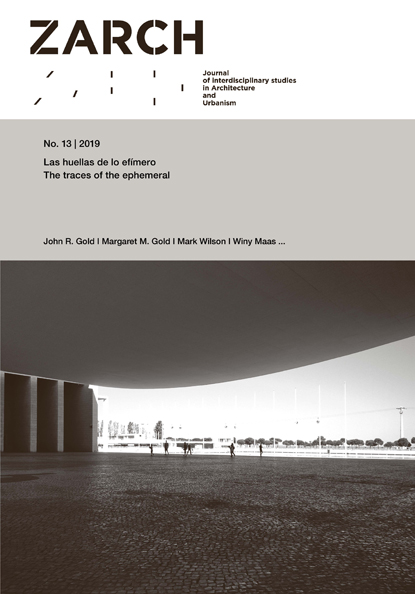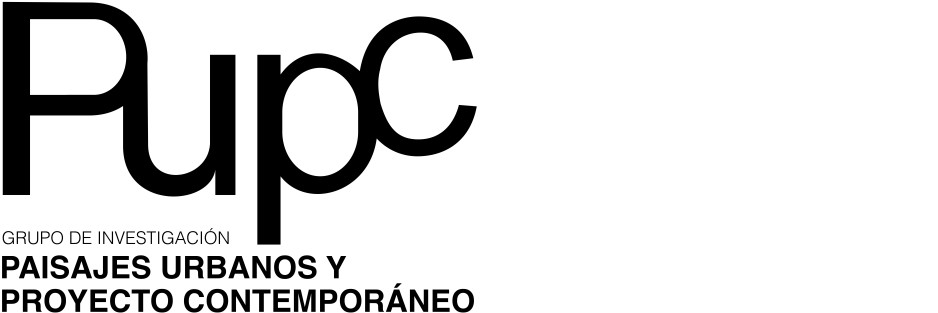Historias de la ciudad olímpica: memoria, narrativa y el entorno construido
DOI:
https://doi.org/10.26754/ojs_zarch/zarch.2019133954Palabras clave:
Juegos Olímpicos, Memoria, Londres 2012, Narrativa, Contestac´iónResumen
El impacto de los Juegos Olímpicos en el tejido urbano de las ciudades anfitrionas es mayor, más profundo y más generalizado que el de cualquier otro evento deportivo o cultural. Este trabajo analiza temas relacionados con la memoria y el recuerdo en las ciudades anfitrionas de los Juegos Olímpicos. Tras introducir del contexto, se utiliza un estudio de caso del Parque Olímpico Queen Elizabeth (QEOP, por sus siglas en inglés), el principal espacio de los Juegos de Verano de Londres 2012, para plantear un nuevo enfoque sobre cómo leer las huellas urbanas de la memoria olímpica. Se identifican tres temas clave al interpretar los recuerdos asociados con el Parque y sus estructuras construidas, a saber: el tratamiento del pasado desplazado del área, la conmemoración de los Juegos y el legado de la memoria. La sección de discusión adopta un enfoque historiográfico, subrayando la importancia de la narrativa y ofreciendo gran variedad de conclusiones sobre la memoria olímpica y la ciudad.
Descargas
Referencias
ABERCROMBIE, Patrick. 1945. Greater London Plan 1944. London: HMSO.
BERNSTOCK, Penny. 2014. Olympic Housing: A Critical Review of London 2012's Legacy. Farnham: Ashgate.
BUTTERFIELD, Herbert. 1931. The Whig Interpretation of History. London: George Bell.
COHEN, Phil and WATT, Paul (eds). 2017. London 2012 and the Post-Olympics: a hollow legacy? Basingstoke: Palgrave-Macmillan.
ESSEX, Stephen and CHALKLEY, Brian. 1998. ‘Olympic Games: catalyst of urban change’. Leisure Studies, 17, 187-206.
GIRGINOV, Vassil. 2018. Rethinking Olympic Legacy. Abingdon: Routledge.
GOLD, John R. and GOLD, Margaret M. 2017. Olympic futures and urban imaginings: from Albertopolis to Olympicopolis. In John Hannigan and Greg Richards (eds). The SAGE Handbook of New Urban Studies, London: Sage, 514-34.
GOLD, John R. and GOLD, Margaret M. 2017. The enduring enterprise: the Summer Olympics, 1896-2012. In John R. Gold and Margaret M. Gold (eds). Olympic Cities: city agendas, planning and the world’s games, 1896-2012. London: Routledge: 21-63.
GOLD, John R. and GOLD, Margaret M. 2018. Urban Segments and Event Spaces: World’s Fairs and Olympic Sites. In Carola Hein, ed. The Routledge Handbook of Planning History, Abingdon: Routledge, 348-63.
GRIX, Jonathan. (ed). 2017. Leveraging Mega-event Legacies, Abingdon: Routledge.
HOBSBAWM, Eric. 1983 Introduction: inverting tradition. In Eric Hobsbawm and Terence Ranger, T., eds.1983. The Invention of Tradition. Cambridge: Cambridge University Press, 1-14.
LEOPKEY, Becca and PARENT, Milena M. 2017. The governance of Olympic legacy: process, actors and mechanisms. Leisure Studies, 36, 438-451.
MACALOON, John J. 2016. Agenda 2020 and the Olympic movement. Sport in Society, 19, 767-785.
OLYMPIC PARK LEGACY COMPANY. 2010. A Walk around Queen Elizabeth Olympic Park. London: Olympic Park Legacy Company.
O'NEILL, Patrick. 1996. Fictions of Discourse: reading narrative theory, Toronto: University of Toronto Press.
POWELL, Hilary and MARRERO, Isaac (eds). 2012. The Art of Dissent: Adventures in London's Olympic State. London: Marshgate Press.
REAVEY, Paula. 2017. Scenic memory: experience through time–space. Memory Studies, 10, 107–111.
ROBBINS, Glyn. 2015. From Upton Park to Olympic Park: What does West Ham’s move tell us about sport and regeneration? Local Economy, 30, 975-982.
SINCLAIR, Iain. 2011. Ghost Milk: calling time on the Grand Project. London: Hamish Hamilton.
VIEHOFF, V. and POYNTER, G., 2016. This is East 20? Urban Fabrication and the Re-making of the Olympic Park: Some Research Issues. In Valerie Viehoff and Gavin Poynter (eds) Mega-event Cities: Urban Legacies of Global Sports Events. Abingdon: Routledge, pp. 105-118.











